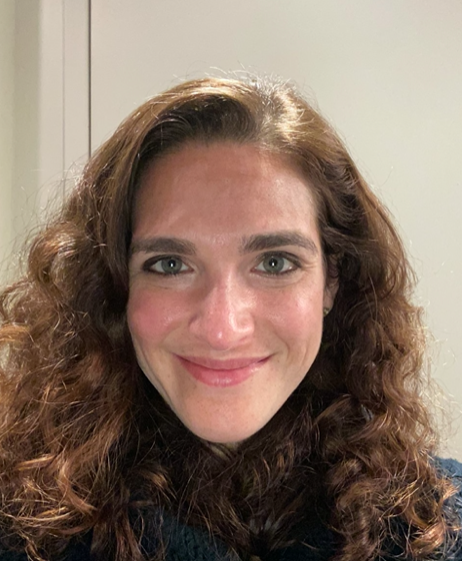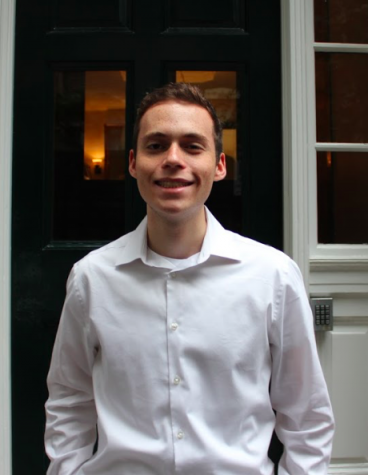Interview with Ms. Messinger: New Dean of College Guidance

Ramaz is excited to announce that it now has a Dean of College Guidance. Ms. Dana Messinger joined the College Guidance Department this fall in the newly-created role, growing the department to a total of four. Her position includes working with Mr. Blumenthal, Dr. Honig, Ms. Davis, and all of their student advisees, focusing on improving and changing aspects of the college guidance office and developing the Ramaz college guidance process for the long term. The Rampage secured an interview with Ms. Messinger during which she expressed her excitement for the new position, elaborated on her role, and described plans she has in store for underclassmen.
Zach Buller: Where did you work before beginning at Ramaz this September?
Ms. Dana Messinger: I attended Georgetown Law School and then worked in white collar criminal defense at O’Melveny and Meyers for four years, but I decided it wasn’t for me and wasn’t what I wanted to do with my life. I then worked in politics for a year, and I enjoyed it, but it was not what I wanted to do. I realized that admissions was something I’d always been interested in; I was a tour guide and an interviewer in college and graduate school. My experience in admissions only grew from there. I spent four years at Johns Hopkins (my alma mater) as the Senior Assistant Director Admissions Officer, and then became the Director of Freshman Admissions at Baruch College back in New York. After Baruch, I worked in Columbia Law School admissions and was an admissions officer for The New School. In my recent time in New York I also did private college consulting with high school students.
ZB: What draws you to working in admissions?
DM: I like conversing with people. Admissions officers always give a lot of presentations, and I like that. Also, I’m a puzzle person (in a social-science way), and when you’re crafting a class, you evaluate each kid individually, but you also have to think about the class as a whole and how each kid fits into that puzzle.
ZB: Why did you come to Ramaz?
DM: I really enjoyed counseling students, and I missed working directly in the undergraduate admissions process. I love working with students and helping them develop their stories—helping them realize that their applications shouldn’t be a collection of ten random things, but a story so that the admissions officer can sum up a kid in two sentences. What I also love about it is that when the process goes really well, it is a process of self-discovery for the student.
ZB: What specifically from your extensive experience in admissions will you use to help Ramaz students?
DM: I have insight in being able to understand the message of an application. I can help a student identify the story and theme they need to make their application stand out. Not every student is able to easily self-reflect, and the writing process is stressful and hard. Even for really strong students, it can be difficult to be told that you have to rewrite what you worked on.
ZB: Broadly, what is your role at Ramaz?
DM: Well, I have a lot of things in the works, but my main role is to oversee the college guidance process for all students. This year, I am not working with any students in particular; anyone can come to me with questions, and I am doing a second read (after the primary college advisor) of everyone’s essays. Next year, however, I will have a cohort of students (like the three primary college advisors), and I don’t think I can work the process effectively without it. All of the college advisors work very well together, and I am here to enhance the group.
I do have a few goals in mind that I would like to achieve in the coming years. First, I want to bring the process earlier—get underclassmen started in thinking about college applications. Not to talk to them about tests and essays, but to ensure that they are exploring their passions throughout high school so that they can find their passions and help them learn and grow, and also be productive in the process. Advisors should also be coming to students earlier—not starting mid-junior year, but maybe starting to meet with the students in November and December of junior year.
Additionally, I believe that summer research and intellectual opportunities are the perfect way to bolster students’ applications. I plan to work with Ramaz alumni to invite high school freshmen and sophomores for research opportunities in every field, including, but of course not limited to, publishing, media, science, communications, and hard science. Any student who plans to apply to college saying they’re interested in political science should be working on a campaign now, and I want to make these types of valuable work experiences more accessible to students.
Finally, I want to change the culture surrounding the senior bulletin, and even create a junior bulletin. Communication between the college office, students, and parents is essential, and these bulletins are great opportunities to present all of the information in a clear and organized way.
ZB: Have you begun/do you plan to meet with admissions officers from various universities?
DM: I’ve sat down with every admissions officer who has come to give an info session thus far. I also went to the National Association of College and Academic Counseling conference at the end of September, and I had the opportunity to speak to many admissions officers there.
ZB: Would you ever advocate to colleges to accept specific students?
DM: No. In the past, there used to be used to be more advocacy by the college advisors, but some schools don’t want to hear it anymore. Some do. However, we would never say that of the five students who applied early, for example, you should take this one. We would never throw any students under the bus. Especially for early decision, we try to sell all of the students who apply to a given school. For regular decision, we are able to tell the college if we know it is a student’s first-choice school and that he or she will go if accepted. This doesn’t undermine any other students, but signals to the college that accepting a given student won’t disrupt their yield rate.
ZB: If you could change anything about the current structure of the college guidance process, what would it be?
DM: My big thing is working with students at a younger age to help them discover their interests and passions earlier so they are more interesting in the admissions process. I want to make it clear to all students earlier that there are some activities that could be meaningful to the student, but might not stand out in an application. I want to make sure that students don’t participate in activities “just for college” that they don’t actually enjoy and make sure they are pursuing what they love in a compelling and unique way, to the best of their abilities. Freshman year is probably too early to push students to a specific experience, but it is important to have college advisors there as a resource in the early stages of high school.
ZB: What advice would you give to the freshmen, sophomores, juniors, and seniors?
DM: Freshmen: Get involved in extracurricular activities and find what you love. Do something besides go to class. Also, seek help when you needed it.
Sophomores: Think about the things you loved and discovered. Talk to the guidance office and parents about summer plans and how you express those interests in ways that are memorable. (Also, follow the same advice I gave to the freshmen. It’s a buildup).
Juniors: This is your year to buckle down and do well. Grades are your first priority. Whether you need to maintain your good grades, or you did better sophomore year than freshman year, an upward trajectory is really important. Also, definitely work on your essays over the summer.
Seniors: Yes, the first semester is super hard. Engage in some self care. Sleep and take care of yourself. If you averaged out first semester and the second semester, it would seem like a normal year! Make sure to buckle down and do this, and don’t make yourself crazy in the process. You’re almost there!
~~~
Ms. Messinger is thrilled to have begun her new role this past September and has already made incredible strides in bringing positive changes to the department. We wish her best success in her new role and can’t wait for future developments.

Zach Buller has been an active member of The Rampage staff since the first week of his freshman year, and now serves as Co-Editor-in-Chief. In his four...


